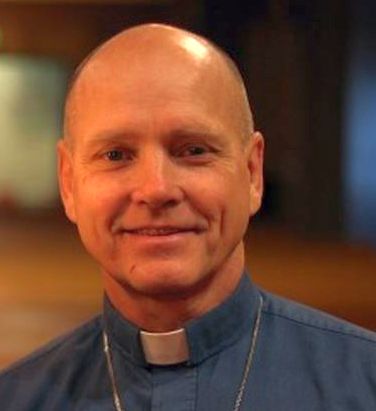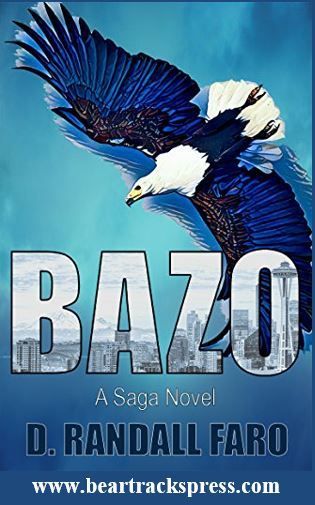
Randy is a speaker, preacher, and lifetime worker with words. His experience in the killing fields of Vietnam and apartheid-gripped Namibia, his global travels in some two dozen countries, and decades of working for peace with justice in North America provide an experience-rich context for his first novel. He lives with his wife, Betsy, in Olympia, WA.

About the book
Jedediah Bazo’s early upbringing was with the Ndebele culture of Zimbabwe. After coming to the U.S. for education, he does a stint in the Marine Corps, goes to seminary, and ends up with a street ministry to marginalized people on Seattle’s south side. Seeing the ravages of child prostitution, Jed works to dismantle a west coast trafficking ring. His USMC skills combined with an expertise in martial arts serve him well as he confronts this raw evil. Encountering a richly developed cast of characters spanning three continents and five decades, the reader will come to champion Jed and to wrestle with the same ethical issues he does.
Randy was scheduled to read at the July WordFest before Covid-19 ended group events. Alan spoke with him about his novel.
How did you get the idea for this book?
Some of the seeds sprouted from my experiences both as a Marine in Vietnam and as a Lutheran pastor for forty years. My goal was to provide a good action novel, but one that also challenges readers to examine what are morally acceptable responses when faced with soul-destroying wickedness.
The book goes into the very grim and dark territory of human trafficking, especially of children. What prompted you to explore such dark aspects of the human soul?
To stimulate wrestling with ethical questions, I chose a context which any sane person would deem ultimate evil. Character development elucidates how or why anyone could ever perpetrate such horrific actions. The subject also provides a basis for Jedediah, a man of faith, to examine his own values in the face of the sexual exploitation of little girls.
How long did it take to write?
After years of thinking, research, and plotting the story line, it took eleven months, from striking the first keys to the last. I built a little writing shack in my yard and basically disappeared. But another year passed before publication as the manuscript was given to first-readers and then revised. And revised again.
What background or training did you have for writing a novel?
My qualification for writing the book was simply being a lifelong wordsmith and inveterate reader. I have had no formal training in writing, but having read zillions of books and spending a career as a preacher/teacher, I was determined to give it a shot. With this as my first novel, I wondered if I could do it and if I would enjoy it. The answer to both is an emphatic yes. I had more fun than I ever imagined . . . which continues with the sequel, Gunnar.
You write very authoritatively and affectionately about the Ndebele people of Zimbabwe. How are you familiar with their culture?
I have traveled repeatedly throughout southern Africa and met some Ndebele people. After choosing 1940s southern Rhodesia as the place for Jed’s early development, I then simply did extensive online research. My purpose was for Jed Bazo to be raised with the Ndebele values of courage and caring.
What was the process in getting the book published?
Everything I read encouraged self-publishing, so I formed Beartracks Press (www.beartrackspress.com). Siblings contributed to the proofreading and editing, and my son David turned the manuscript into digital and print formats for its availability at Amazon online.
How soon will the sequel be coming out?
Gunnar is in the making and will hopefully be available late this year or early 2021. The COVID-19 scourge is making on-the-ground research more challenging, but the internet helps a lot. There will be a “spoiler alert” at the beginning of the sequel because if it is read prior to Bazo, it will ruin some big surprises in the latter.
How are you marketing Bazo?
David has done professional marketing for another industry and is handling this for me. Our idea for marketing was to segment our potential audiences into the specific groups who the book might appeal to–the general book reading public, readers who identify with a religious faith, and the military–and then create marketing plans aimed at each group. We’ve created video interviews for my YouTube channel and have also created a Facebook page. We are attempting to build a large enough list of subscribers that we can begin a re-marketing campaign through larger media outlets. We are also compiling an email list of organizations, people, and institutions that we feel would have an interest in the themes in the book, and we are sending regular marketing emails to this list. We hope to spend the next few months generating a buzz that lights a fire.
You can watch Randy’s video interviews about the writing of his book and the issues it confronts on his Author’s YouTube Channel here.
Bazo is available at Amazon.com in paperback ($18) or as an e-Book ($4.99)
